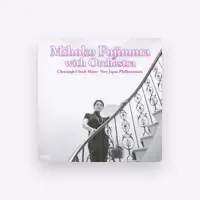
Classical
Italy
Claudio Abbado
Top de canções de Claudio Abbado
Mais álbuns de Claudio Abbado


Sobre Claudio Abbado

Terra natal
Milan, Italy
Data de nascimento
1933
Género
Classical
Almost as taciturn in rehearsal as he was to the press, Abbado used his expressive conducting to convey to orchestras what he required in terms of instrumental color, phrasing, and interpretation. He was most at home with the vivid depictions by Mussorgsky, Verdi, Prokofiev, and Debussy complemented by the lyrical symphonic tradition of Schubert, Mendelssohn, and, above all, Mahler. Born in Milan in 1933 to a musical family, Abbado resolved to become a conductor after attending a performance of Debussy’s subtle and enchanting Nocturnes (1892-1899). His taste extended to a more blatantly colorful repertoire: The first opera he conducted, in 1959, was not from the standard Italian repertory but rather Prokofiev’s playfully surreal The Love for Three Oranges (1921). Though by nature shy, Abbado’s musicianship secured him top positions as principal conductor or artistic director of several prestigious orchestras and opera companies, including the London Symphony Orchestra; La Scala—where he championed such contemporary composers as Luigi Nono and trained the orchestra to give concerts in its own right; the Vienna State Opera; and the Berlin Philharmonic. Abbado himself founded several orchestras made up of talented young players, which, in turn, created such spin-offs as the Chamber Orchestra of Europe and the Mahler Chamber Orchestra. He died in 2014, leaving behind a rich legacy of recordings and elite orchestral players.
Claudio Abbado também lançou música como membro de Mahler Chamber Orchestra.
Influenciado por Claudio AbbadoClaudio Abbado influenciou a música de Christoph Ulrich Meier, OTO Tachihiko, Ezio Bosso e outros.
Semelhante a: Claudio Abbado
Descobre mais músicas e artistas semelhantes a Claudio Abbado, como Berlin Philharmonic, Vienna Philharmonic, Bavarian Radio Symphony Orchestra


































![Ouve Lucerne Festival 2007 (Mahler: Symphony No. 3) [Live / Visual Album] de Lucerne Festival Orchestra & Claudio Abbado Ouve Lucerne Festival 2007 (Mahler: Symphony No. 3) [Live / Visual Album] de Lucerne Festival Orchestra & Claudio Abbado](https://is1-ssl.mzstatic.com/image/thumb/Music112/v4/ab/15/21/ab15216e-dd8a-808b-9f92-682073e8c16e/22UMGIM51147.rgb.jpg/276x276bb.webp)











![Ouve Mozart: Symphonies No. 31 "Paris" & 25, Masonic Funeral Music, Posthorn Symphony [Expanded Edition] de Claudio Abbado & Berlin Philharmonic Ouve Mozart: Symphonies No. 31 "Paris" & 25, Masonic Funeral Music, Posthorn Symphony [Expanded Edition] de Claudio Abbado & Berlin Philharmonic](https://is1-ssl.mzstatic.com/image/thumb/Music/2e/fb/4d/mzi.gybgddqf.jpg/276x276bb.webp)















































































